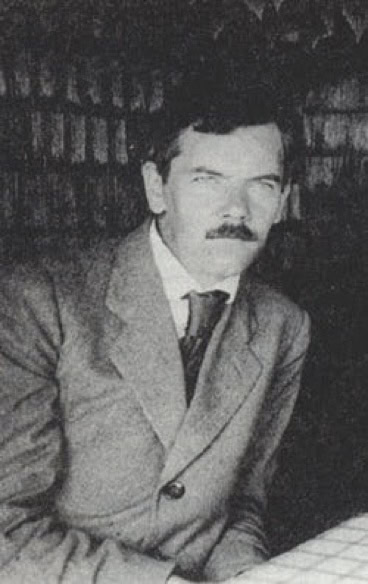
The secular age – a fallout of the Gospel?
Friedrich Gogarten and (Post-)Modern Society
Volker Leppin
Yale University
Friedrich Gogarten presented a fascinating thought shortly after WW II: What if secularization was not opposed to Christian faith but rather a fallout of faith? Only when we look bottom up, from world to God, or from world to faith, might we feel faith voided and secularized. If we understand the world top down, from God’s point of view, the world is nothing more than the world. Seeing the world de-sacred or disenchanted is nothing frightening than for Christians but the only possible view. The world as creation has nothing divine in it. The World, he adds, is nothing in itself because it is totally created, which means it is totally dependent on the creator. Humans are a part of the world as well. They have everything from God, in particular their freedom, which makes them free from this world.
Freedom is not the same as being boundless. As a German, Gogarten spoke of“Antwort” and “Verantwortung”, which in English can best be rendered as “response” and “responsibility.” The human being faces God, and God is the only one they have to respond to, as the human being is the only creature that is able to respond. This generates a human responsibility for the rest of creation and for the world in general. The Christian, positioned in this world and acknowledging its status as creation, on the one hand, accepts and molds the order of the world. This applies to justification, a key issue for the Lutheran theologian Gogarten. He draws the picture of a Christian who knows that nothing in this world contributes to their salvation. If this is right, then they can use everything in this world: “All the differences between life and death, between holy and unholy, between good and evil, valid in this world and by which man’s deeds can be known as either helpful or unhelpful, disappear before salvation whose divine reality faith alone is able and called to preserve.” In this sense, the world is absolutely secular, indeed.
Our conference makes clear that Gogarten’s view of the world being conclusively secularized doesn’t hold anymore. Does his entire theology fail to understand our times then? Of course, the notion of a post-secular world would have been a surprise for Gogarten. Nevertheless, some of his thoughts are apt to respond to the new situation, or, rather: the new description of the situation. In particular, his concept of religion helps here. Gogarten defined Christianity as a completely historical phenomenon, which is subject to secularization itself, and in full dialectical throttle, he adds that the Christian faith “must be sharply and clearly distinguished from historical Christianity”. If we follow Gogarten here, all parts of religion are part of the secular world. Post-secular religion, then, still is part of creation, while faith may originate outside of it and exist independent of it. Yet, religion is still related to faith. This means that religion, as a part of society, binds the individual to an ultimate reality. This reality is above all other things that are framed in social institutions, habits or rules. As a part of this society, in this world, Christians sense a tension between the ultimate religious reality and the temporal reality. As part of society, a Christian cannot trespass the rules of this society, but they can articulate this tension, in particular when it comes to ethical issues. Christianity still in a post-secular society is called to shout out where reality falls short with respect to Christian hope – and where Christians should take action to change this.
